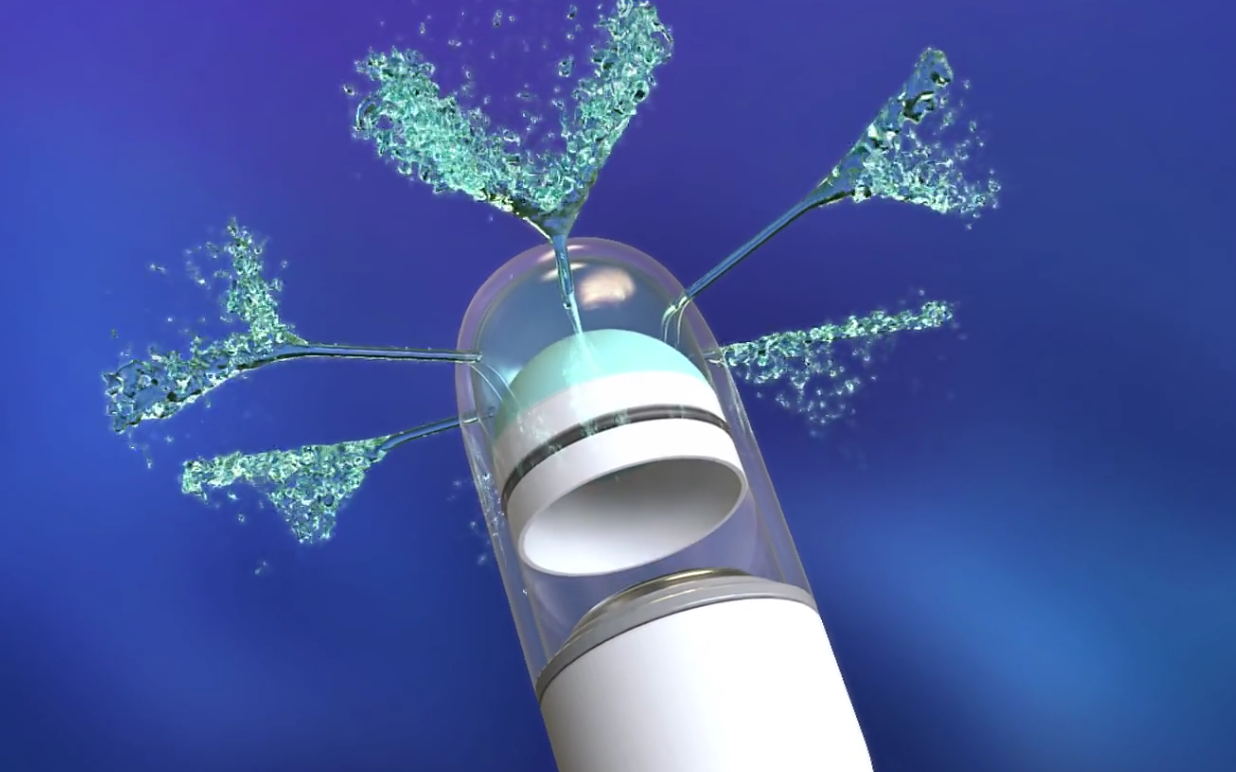Inflammatory bowel disease (IBD), comprising Crohn’s disease and ulcerative colitis, is characterized by acute and chronic inflammation of the gut. While some of the most effective treatments for IBD are biologics that must be administered by infusion or injection, it is often difficult to achieve therapeutic drug levels at the site of disease and systemic toxicities may limit dosing. Biologics tend to lose efficacy for many patients due to the appearance of anti-drug antibodies. Moreover, therapies administered via infusion or injection can negatively affect patient quality of life, posing significant issues with adherence to therapy. Thus, a need for safer, more efficient, and more convenient treatments for IBD remains.

Small molecule drugs offer significant advantages as therapeutics. Some of the best cellular targets for treatment of IBD are located in the gut vasculature. Therefore, delivering small molecule drugs directly to the gut via ingestion has the potential for greater efficacy and more favorable side-effect profiles. Additionally, small molecule drugs tend to have a shorter serum half-life than biologics, reducing the risk of adverse off-target effects, and they lack the potential for immunogenicity. From a convenience standpoint, orally delivered drugs tend to be preferred by patients as they are self-administered and non-invasive, not requiring infusions or injections. However, they typically require once or twice daily dosing, which may represent an inconvenience for some patients that may affect compliance.
Further issues of convenience and drug effectiveness arise as some oral medications work best when taken with food while others are best absorbed on an empty stomach. This may require patients on more than one therapy to remember specific information about each drug, and to potentially juggle with medications and food intake several times a day.
Now Biora Therapeutics (formerly called Progenity), a biotech company focusing on improving drug delivery, has achieved initial success at developing a “smart” capsule drug delivery system that allows small molecule therapies to effectively reach cellular targets in the gut regardless of whether the patient takes them with food. Biora’s drug delivery system is an ingestible capsule, similar in size to those for fish oils, that delivers a payload of up to 500µl liquid or solid formulation. Once swallowed, a proprietary mechanism allows the capsule to autonomously identify specific locations in the gastrointestinal (GI) tract and release its content. A small proof-of-concept study in normal healthy volunteers demonstrated that ingested capsules containing a solution of saline and a radioisotope entered the colon and deployed their contents, as measured by serial gamma scintigraphy imaging. The desired results were seen regardless of whether the subjects were fed or fasting. In late October 2022, a second study in seven patients with moderate to severe ulcerative colitis further demonstrated the device’s ability to localize and deliver the same solution to the lower GI tract, confirming that the device would work as desired in IBD patients.
Biora now plans to initiate a Phase 1 clinical trial with a liquid version of the JAK 1 /3 inhibitor tofacitinib (Pfizer’s Xeljanz, which became generic in 2021) in the first half of 2023, delivered via its new capsule. The company’s intent is to use its new delivery system as a way to improve the treatment of IBD while differentiating its version of tofacitinib within the genericized market. Biora is also developing a version of adalimumab for IBD and a GLP-1 agonist for diabetes, both using the new delivery capsules, and has partnered with Ionis and two other undisclosed pharmaceutical companies on applications of Biora’s technology to their products.
Novel drug delivery systems offer a valuable approach to differentiating drugs that compete within a generic market. Reformulating drugs to provide greater convenience, safety, or other performance benefits can help market entrants stand out and potentially command premium prices. Reformulation has long been a strategy for product differentiation, especially within the OTC marketplace, with changes primarily focused on relatively simple attributes like taste-masking or ease of swallowing. Now, more advanced delivery technologies like Biora’s capsules and other “smart drug” technologies have the potential to provide significant new value to the patient, thus driving differentiation.